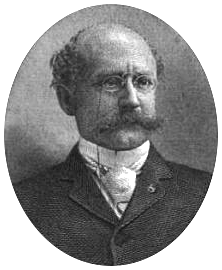Henry H. Bingham facts for kids
Quick facts for kids
Henry Harrison Bingham
|
|
|---|---|

Henry Harrison Bingham
|
|
| Born | December 4, 1841 Philadelphia, Pennsylvania, US |
| Died | March 22, 1912 (aged 70) Philadelphia, Pennsylvania, US |
| Place of burial |
Laurel Hill Cemetery, Philadelphia, Pennsylvania
|
| Allegiance | United States Union |
| Service/ |
United States Army Union Army |
| Years of service | 1862–1866 |
| Rank | |
| Unit | |
| Battles/wars | American Civil War |
| Awards | Medal of Honor |
Henry Harrison Bingham (born December 4, 1841 – died March 22, 1912) was an important American leader. He was a politician from Pennsylvania. He served in the United States House of Representatives, which is part of the U.S. government where laws are made. He was a member of the Republican Party.
Before his political career, Bingham was a brave officer in the Union Army during the American Civil War. He fought in many big battles. He even received the Medal of Honor. This is the highest award for bravery in the U.S. military. He earned it for his actions at the Battle of the Wilderness.
Contents
Early Life and Education
Henry Harrison Bingham was born in Philadelphia, Pennsylvania, on December 4, 1841. He went to Jefferson College in Canonsburg, Pennsylvania. He graduated in 1862. Later, in 1902, he received another degree from Washington and Jefferson College.
Serving in the Civil War
Bingham joined the Union Army in 1862. He became a first lieutenant in the 140th Pennsylvania Volunteer Infantry.
The Battle of Gettysburg
During the Battle of Gettysburg in July 1863, Bingham was a captain. He worked for Major General Winfield Scott Hancock. Bingham saw a famous event called Pickett's Charge. He was near the "Angle," where Confederate soldiers reached the "High Water Mark."
He helped a dying Confederate general, Lewis Addison Armistead. Armistead was a friend of General Hancock before the war. Bingham took Armistead's personal items. He then delivered them to General Hancock, as Armistead had asked. Bingham was also wounded during this battle on July 3, 1863. A memorial called the Friend to Friend Masonic Memorial at Gettysburg National Cemetery remembers this event.
Bravery at the Wilderness
In 1864, Bingham became an aide to Major General Gouverneur K. Warren. During the Battle of the Wilderness on May 6, 1864, he showed great courage. As a captain, he "rallied and led into action" his troops. They had been pushed back by strong enemy attacks. For his bravery, he received the Medal of Honor on August 26, 1893.
More Battles and Promotion
Bingham was wounded again at the Battle of Spotsylvania on May 12, 1864. Later that year, he was promoted to Major. He was also captured at Dabney's Mill, Virginia, but he managed to escape on the same day.
He was wounded a third time in 1865 at Farmville, Virginia. Bingham left the army on July 2, 1866. In 1867, President Andrew Johnson gave him an honorary promotion. He became a brevet brigadier general of volunteers.
Political Career
After the war, Henry Bingham became the postmaster of Philadelphia in 1867. He held this job until 1872. Then he became a clerk for the courts in Philadelphia.
He was also involved in the Republican National Conventions from 1872 to 1900. These are meetings where the Republican Party chooses its presidential candidate. In 1878, he was elected to the United States House of Representatives. He served there until he passed away in 1912. In Congress, he led important committees. These included the Committee on the Post Office and Post Roads.
Henry Harrison Bingham died in Pennsylvania on March 22, 1912. He is buried in Laurel Hill Cemetery in Philadelphia.
Honors and Awards
Other Honors
Bingham County, Idaho was named in his honor.
 | James Van Der Zee |
 | Alma Thomas |
 | Ellis Wilson |
 | Margaret Taylor-Burroughs |

